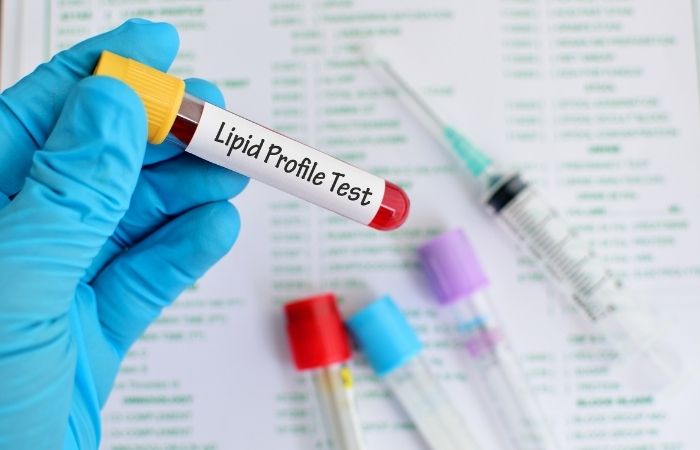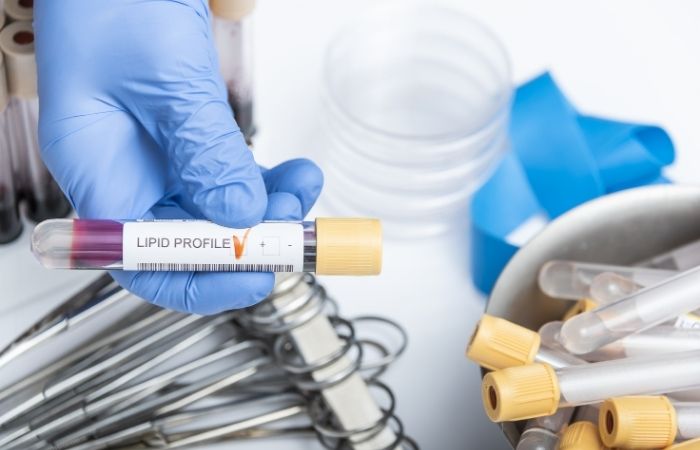
As we age, our bodies undergo a variety of changes that can affect our health in different ways. One of the most significant health risks for seniors is cardiovascular disease, which is often linked to cholesterol levels. A lipid profile test is a simple and effective way to assess the health of your heart and circulatory system. This test is crucial for seniors to monitor their cholesterol and lipid levels, helping prevent heart disease, stroke, and other related conditions.
A lipid profile test is a blood test that measures the levels of specific types of fats (lipids) in your blood. These include:
1] Total Cholesterol: The overall amount of cholesterol in your blood.
2] Low-Density Lipoprotein (LDL) Cholesterol: Often referred to as "bad" cholesterol, high levels of LDL can lead to plaque buildup in arteries, increasing the risk of heart disease and stroke.
3] High-Density Lipoprotein (HDL) Cholesterol: Known as "good" cholesterol, HDL helps remove LDL from the bloodstream, reducing the risk of heart disease.
4] Triglycerides: A type of fat found in the blood, elevated triglyceride levels can also contribute to heart disease.
The lipid profile test provides an overview of these lipid levels and helps doctors assess your cardiovascular health. For seniors, this test is essential because as we age, the risk of developing heart disease and related conditions increases. High cholesterol levels often have no symptoms, which makes regular testing important for early detection and prevention.
Lipid profile testing plays a critical role in monitoring and managing cardiovascular health, especially for older adults. As seniors age, the risk of developing heart disease, stroke, and other cardiovascular problems rises. Here are some key reasons why lipid profile testing is essential for seniors:
Heart disease is the leading cause of death among seniors, and many of its risk factors, such as high cholesterol, can go unnoticed until it’s too late. By regularly testing cholesterol levels, seniors can detect any abnormalities early on and take proactive measures to manage them. A lipid profile test helps identify risk factors like high LDL cholesterol and elevated triglycerides, which are often precursors to heart disease.
Cholesterol management is a vital aspect of senior healthcare. Even if cholesterol levels are slightly elevated, seniors can make lifestyle changes such as diet modifications, exercise, or medication to keep levels under control. Regular lipid profile tests help track changes in cholesterol levels over time, making it easier for doctors to adjust treatment plans accordingly.
Many seniors are prescribed medications like statins to help lower cholesterol levels. Regular lipid profile tests help doctors monitor how well these medications are working and whether adjustments are needed. Without testing, it’s difficult to assess the effectiveness of cholesterol-lowering treatments.
High cholesterol can lead to the buildup of plaque in the arteries, which can restrict blood flow and increase the risk of heart attacks and strokes. A lipid profile test can help detect dangerous cholesterol imbalances before they cause major health problems. By addressing high cholesterol early, seniors can lower their risk of severe cardiovascular events.

The frequency of lipid profile tests for seniors depends on their individual health conditions, risk factors, and overall health status. Generally, seniors who are healthy and have no risk factors for cardiovascular disease should undergo a lipid profile test every 1-2 years. However, if a senior has high cholesterol, diabetes, or a family history of heart disease, their doctor may recommend more frequent testing.
In addition to routine tests, seniors who are already diagnosed with high cholesterol or are taking medication to manage cholesterol levels should have their lipid profile tested regularly to ensure their levels are within a safe range.
Preparing for a lipid profile test is straightforward but does require some basic steps to ensure accurate results:
One of the key requirements for an accurate lipid profile test is fasting. Typically, seniors are asked to fast for 9-12 hours before the test. This means no food or drink (except water) during this period. Fasting helps provide a clear measurement of cholesterol and triglyceride levels without interference from recent meals.
If you are taking any medications, especially cholesterol-lowering drugs like statins, blood thinners, or diuretics, be sure to inform your doctor or the technician conducting the test. Some medications can affect lipid levels, and your doctor may want to adjust the test or interpret the results accordingly.
While fasting, it’s important to stay hydrated by drinking water. Proper hydration ensures that the blood sample is adequate for testing and makes the process smoother.
Lipid profile testing is just one part of a comprehensive health check-up. Seniors should schedule regular visits with their healthcare providers to discuss their lipid levels, lifestyle habits, and overall health. This can help identify other risk factors for heart disease or stroke that need to be addressed.
If you’re looking for a pathology test near me in cities like Mumbai, Pune, Nagpur, or Delhi, it’s important to choose a reputable and reliable diagnostic centre that offers accurate results and professional care. A trusted lipid profile test can help you understand your cardiovascular health, but it’s equally important to seek guidance from a professional to interpret the results and develop an appropriate health plan.
We're well-known diagnostic service provider with centres in Pune, Mumbai, Delhi, and Nagpur. Offering advanced diagnostic facilities, we provides accurate lipid profile tests for seniors, helping monitor cholesterol levels and cardiovascular health. With a focus on patient care, they offer a comfortable and efficient testing process, ensuring seniors receive the attention and expertise they deserve.
By choosing us for your lipid profile test, you can trust that you are in the hands of professionals who prioritize accuracy and patient safety. Their centres are equipped with advanced diagnostic equipment, and the friendly staff ensures that seniors are supported throughout the testing process.
The lipid profile test cost can vary depending on the location, the testing centre, and whether additional tests are required. The cost of a lipid profile test starts from Rs. 600/-. Factors that may influence the cost include whether the test includes a complete panel or if additional screening is needed to assess other cardiovascular risk factors.
It’s important to inquire about the lipid profile test cost at the diagnostic centre you choose. Many centres, like Diagnopein offer competitive pricing and may even provide packages for seniors or those who need regular testing.


